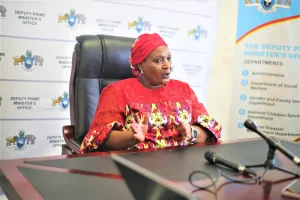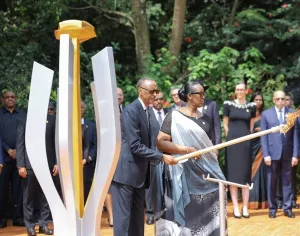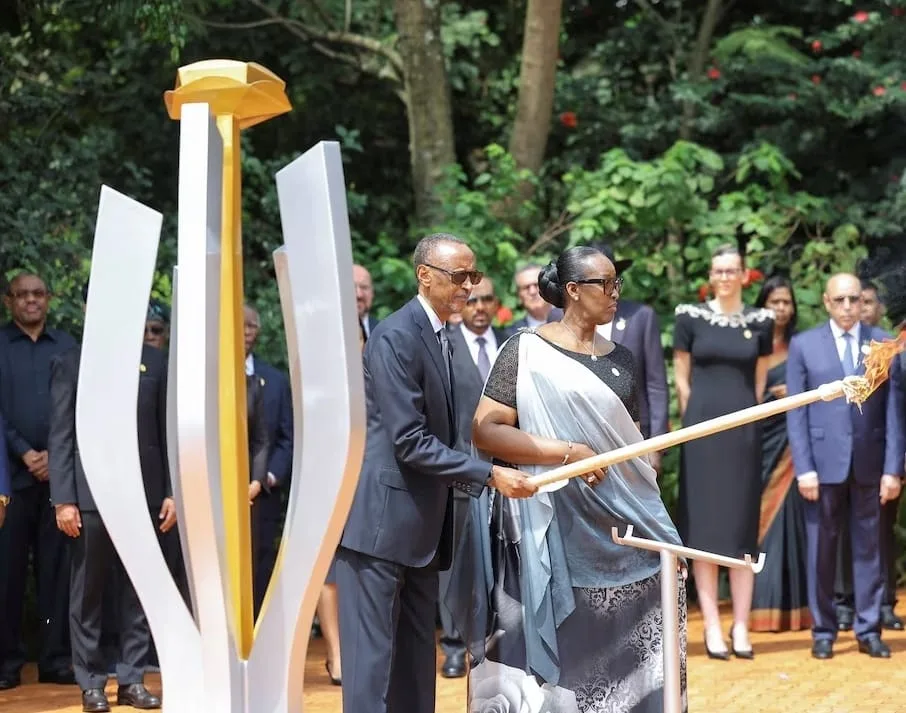By Ncaba Ntshakala

Deputy Prime Minister Thulisile Dladla, acting on behalf of His Majesty King Mswati III, graced the 30th anniversary of the Rwanda Genocide Commemoration in Kigali on Sunday.
Departing from the Kingdom through the King Mswati III International Airport on Saturday morning, Dladla conveyed a message of solidarity and remembrance to the Rwandan people.
Before jetting out, Dladla reflected on the tragic events of 1994, and emphasized the importance of supporting Rwanda, asserting its integral position within the African continent.
In her address to the media, she recounted the atrocities that unfolded during the hundred days of genocide, a dark chapter in human history that saw the loss of nearly one million lives.
ALSO READ:Ae Trade Group meets Prime…
Rwandans on Sunday marked 30 years since a genocide orchestrated by armed Hutu tore apart their country, as neighbours turned on each other in one of the bloodiest massacres of the 20th century.
Rwanda President Paul Kagame led a sombre commemoration ceremony in the capital Kigali on Sunday by placing wreaths on the mass graves in the capital, Kigali, flanked by foreign dignitaries, including the leaders of South Africa, Congo, Ethiopia, Central African Republic, Tanzania, as well as Israeli President Isaac Herzog.

Also present was former United States of America President Bill Clinton, who had called the genocide the biggest failure of his administration.
The killing spree, which began on April 7, 1994, lasted 100 days before the Rwandan Patriotic Front (RPF) rebel militia took Kigali in July of the year, and saw some 800,000 people dead, largely Tutsis but also moderate Hutus.
ALSO READ: Deputy Prime Minister’s housing project nearly complete in Mayiwane, brings joy to 80 year
The assassination of Hutu President Juvenal Habyarimana on the night of April 6, when his plane was shot down over Kigali, triggered the rampage by armed Hutu men and the “Interahamwe” militia.
Their victims were shot, beaten or hacked to death in killings fuelled by vicious anti-Tutsi propaganda broadcast on TV and radio. At least 250,000 women were raped, according to the United Nations figures.
The tiny nation has since found its footing under the rule of Kagame, who led the RPF, but the scars of the violence remain, leaving a trail of destruction across Africa’s Great Lakes region.


